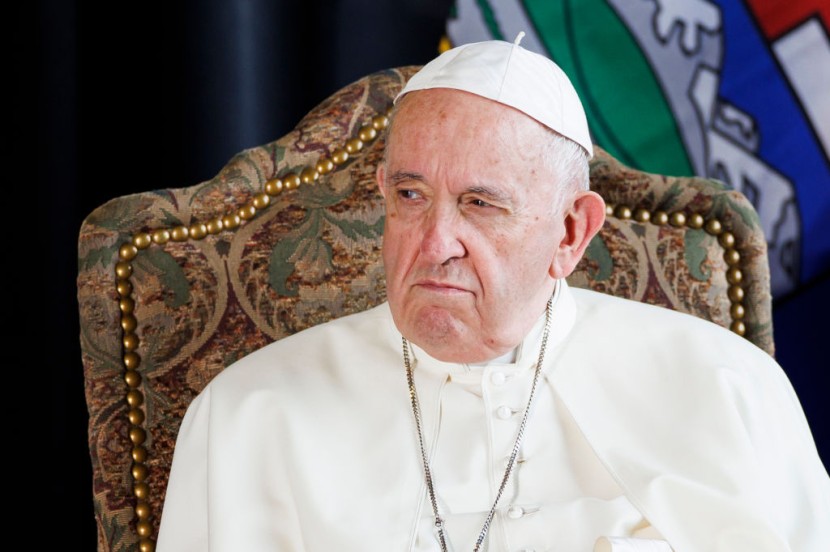
Pope Francis traveled from Rome on Sunday for a week-long trip to Edmonton, Canada, where he is expected to apologize for the Catholic Church's historic abuse of Canadian Indigenous children in residential schools.
The Vatican has called the trip a "penitential pilgrimage" and noted that the Pope will be welcomed in Edmonton on Sunday by Canadian Prime Minister Justin Trudeau and the Governor General of Canada, Mary Simon.
Pope Francis Apologizes
During the trip, Pope Francis will meet with Indigenous groups and address the scandal of historic abuse and erasure of indigenous culture in the nation's residential schools. For a long time, Indigenous leaders have called for a papal apology for the harm inflicted for decades on Indigenous children.
Last year, authorities discovered hundreds of unmarked graves on the grounds of former residential schools in British Columbia and Saskatchewan. In a report, Canada's Truth and Reconciliation Commission said that more than 4,000 Indigenous children lost their lives either from neglect or abuse in residential schools, many of which were run by the Catholic Church, as per CNN.
The Pope told Indigenous leaders in April that he feels "sorrow and shame for the role that a number of Catholics, particularly those with educational responsibility, have had in all these things that wounded you, in the abuses you suffered and in the lack of respect shown for your identity, your culture, and even your spiritual values."
Furthermore, Pope Francis will travel to Quebec and Iqaluit, the capital of the Canadian territory of Nunavut, during his trip to the country. He will be accompanied by two Canadian cardinals throughout his visit, Cardinal Marc Ouellet and Cardinal Michael Czerny.
According to ABC News, top Protestant leaders have also gradually issued institutional mea culpas for their churches' historical wrongdoings. Many of the apologies on behalf of Christian denominations are for grave offenses, such as genocide, sex abuse, slavery, war, and more.
Victims of Historic Abuse
Despite becoming increasingly common, the ecclesial apology is a relatively modern phenomenon, said Jeremy Bergen, a church apology expert and professor of religious and theological studies at Conrad Grebel University College in Waterloo, Ontario.
He added that in the last 1,900 years, churches have not apologized for the bad things that they have done. Bergen pinpoints the pivot to significant apologies coming in the aftermath of World War II, especially a declaration by Germany's Protestant churches that they failed to adequately oppose the Nazis.
It was one of the first in a series of recognitions that Christian institutions themselves committed wrong, said Bergen. Church apologies, in the 1990s, increased as more attention was paid to human rights following the Cold War.
Pope Francis' trip to Canada stirred mixed emotions across the country as survivors and their families coped with the trauma of their losses and receive a long-sought papal apology. The Pope had no official events scheduled for Sunday, which gave him more time to rest before his meeting on Monday with survivors near the site of a former residential school in Maskwacis, where he is expected to pray at a cemetery and apologize, NPR reported.
Related Article:




